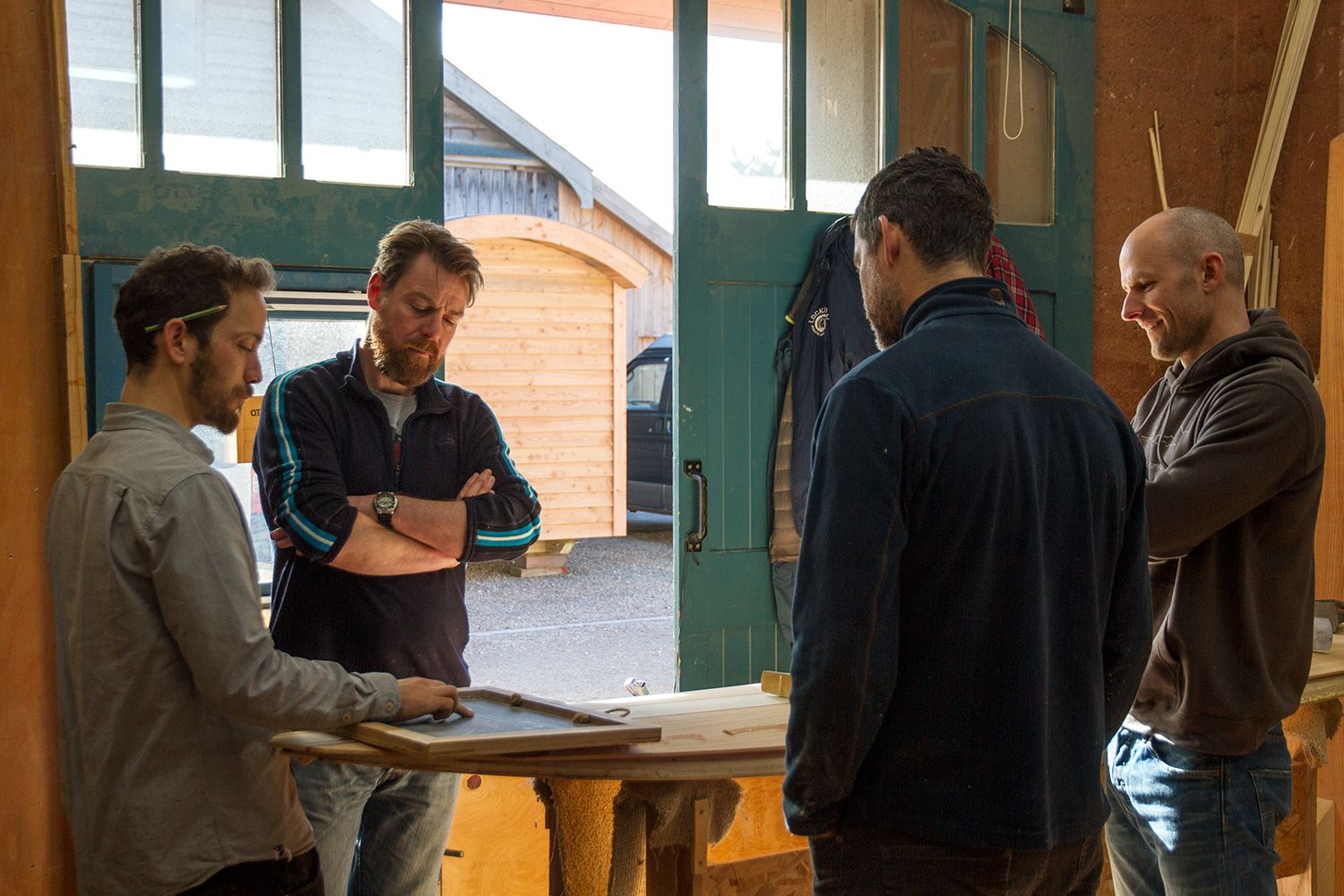31 . 03 . 18
We’ve written before at the close of a workshop week about how, over the course of these five-days, the learning flows both ways. It’s rare that this isn’t the case; almost without fail the people who join us to spend a week learning to make a wooden surfboard have knowledge and skills that they share with us in return. There’s a lovely balance to the exchange of information here.
Last week we were joined by Robbie, who travelled down from Edinburgh, and Matt and Mark who are two friends and work associates from just outside London (Matt runs Locker 27, a very successful gym, and Mark is a physiotherapist who used to work with Chelsea FC but now has a clinic at Matt’s gym). At the end of the week we asked them what they would be taking away from the week (apart from a wooden surfboard and clothes covered in sawdust), and we’re going to balance those by sharing what we learnt from them.














